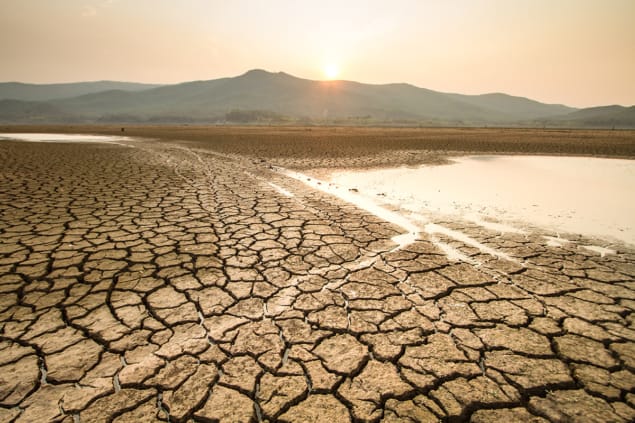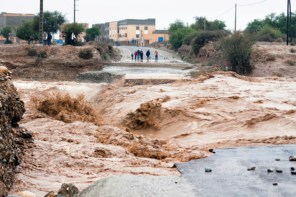
Over 4500 researchers have signed an open letter warning of significant long-term damage due to cuts made to research funded through international aid money. The reductions, which were announced on 11 March, have been met with outrage from the community, being described as “embarrassing”, “shameful” and “myopic”. Last week six researchers resigned from a UK Research and Innovation advisory group in protest at the move.
We accept that these are difficult times and that challenging decisions have to be made, but this cut will have a disproportionate impact
Matthew Watson, University of Bristol
Official development assistance (ODA) grants support researchers in the UK to work with those in lower- and middle-income countries to develop solutions to complex global challenges including climate change, world peace, natural hazards and human health. The open letter, addressed to UK foreign secretary Dominic Raab and chancellor Rishi Sunak, describes how the £120m cut — approximately half the ODA’s research budget — will “obliterate the hard-won trust with international development partners and governments overseas”. It also highlights that the move will cause a “serious impact on climate-facing research” ahead of the 2021 United Nations Climate Change Conference in Glasgow and undermine “the national security that arises from nurturing sustainable global development”.
Hundreds of research projects and thousands of researchers will be hit, with numerous grants having to be terminated mid-project. “We accept that these are difficult times and that challenging decisions have to be made, but this cut – which is a tiny amount of money to the UK Government – will have a disproportionate impact,” says Matthew Watson, a researcher from the University of Bristol, who is involved in a disaster risk reduction project in Guatemala.
Simon McQueen-Mason, from the University of York, is nearing the end of an ODA-funded project using novel enzymes to reduce industrial waste from sugar mills in India. He fears that all the understanding and knowledge they have gained to date will fail to come to fruition if their funding is pulled at this stage. “It’s devastating because the results so far are really promising,” he says.
McQueen-Mason and his team had high hopes that their work would be able to significantly reduce waste streams from one of India’s major and highly polluting industries, whilst also increasing profitability and creating new jobs. And it won’t just be India that loses out. “The systems we have developed would have been incredibly valuable for the UK with potential for making aviation biofuels, bioplastics, organic acids used in industry and high quality re-cycled textiles,” he says, adding that the industrial partners involved in his project that had invested significant amounts of their own money in the work are livid. “At least one of the companies I work with has already written to Innovate UK to ask for their money back,” says McQueen-Mason.
Building trust
Some of the largest projects to be hit will be research “hubs” such as the Water Security and Sustainable Development Hub, which is led by Richard Dawson from Newcastle University. His team of nearly 130 people address issues including flood, drought and climate change risks, and work to improve water quality, sanitation and hygiene in Columbia, Ethiopia, India, Malaysia and the UK.
I worry for the longer-term perception of UK science, international trade and collaboration, if live contracts are so readily annulled
Richard Dawson, Newcastle University
Recently, Dawson’s team have contributed to tackling antimicrobial resistance and provided guidance to the World Health Organisation on how to manage wastewater safely. They have also run projects to monitor SARS-CoV-2 — the virus that causes COVID-19 — in wastewater to provide information on community infection rates. All invaluable knowledge that cannot be capitalised on if his project is axed. UK physicists begin life outside the EU – but remain in Horizon Europe
As well as worrying about the jobs and careers of his team, Dawson is concerned at the impact of the cuts on long-standing and hard-won collaborations with businesses, government and communities. “I worry for the longer-term perception of UK science, international trade and collaboration, if live contracts are so readily annulled,” says Dawson.
That view is backed up by Watson. “This kind of funding is the UK at its best. Working with partners overseas to co-develop solutions through collaboration and sharing of ideas. Strong bonds, built on trust, lead to deep lasting friendships whilst working on a common goal,” he says. “The amount of money saved by the cuts is incomparably small compared to the damage the cuts will have.”



